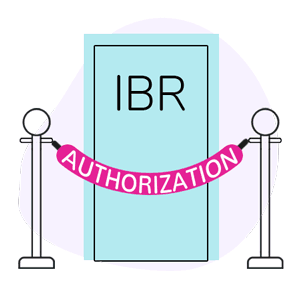CA: Employer Authorization Is Ultimately Worthless

California law mandates that once an employer authorizes treatment for an injured worker, that authorization may not be rescinded “for any reason,” theoretically guaranteeing payment. Yet despite this law, California’s Independent Bill Review (IBR) process for disputing improper payment denials renders employer authorization virtually worthless.
IBR law allows the claims administrator to deny payment to the doctor, and subsequently circumvent IBR by simply denying liability — even if the employer authorized the treatment. This glaring liability loophole turns IBR into a trap of self-contradiction, disguised as a (false) promise of payment justice.
How is this possible? California Labor Code 4603.6. contradictorily states that a doctor cannot use IBR to pursue payment if the claims administrator “contests liability for any reason,” including when the employer authorized the treatment:
“If the employer has contested liability for any issue other than the reasonable amount payable for services, that issue shall be resolved prior to filing a request for independent bill review…” [emphasis added]
In other words, if a claims administrator lists literally any liability issue on the Explanation of Review (EOR) — however demonstrably false — California law precludes the doctor from pursuing IBR. An IBR dispute with Sedgwick, described below, provides a perfect example of how employer authorization is a worthless paper shield for doctors.
If California legislators are serious about making IBR more equitable and just, the law needs to treat authorization as binding, and protect doctors accordingly. Proof of authorization should automatically guarantee a dispute's eligibility for IBR.
Authorization Guarantees Payment (and Should Guarantee IBR Eligibility)
California Labor Code Section 4610.3 mandates that authorization is final and (absent fraud) cannot be rescinded for literally any reason, even if the employer later determines the provider was not eligible to render the authorized treatment. §4610.3(a) states:
Regardless of whether an employer has established a medical provider network pursuant to Section 4616 or entered into a contract with a health care organization pursuant to Section 4600.5, an employer that authorizes medical treatment shall not rescind or modify that authorization after the medical treatment has been provided based on that authorization for any reason, including, but not limited to, the employer’s subsequent determination that the physician who treated the employee was not eligible to treat that injured employee. [emphasis added]
By authorizing medical treatment, the employer confirms the treatment as medically necessary — and agrees to pay for it. Questions of liability, compensability, and network participation are moot.
Unfortunately, in practice, the IBR process currently fails to recognize authorization as a guarantee of payment, leaving claims administrators an easy way out of payment when providers request IBR.
The Liability Loophole
To avoid reimbursing a doctor for authorized treatment, the claims administrator can deny payment, and subsequently skirt IBR by issuing an EOR that contests payment liability — regardless of whether that contestation is correct or even based in reality. Labor Code Section 4603.6 states:
If the employer has contested liability for any issue other than the reasonable amount payable for services, that issue shall be resolved prior to filing a request for independent bill review, and the time limit for requesting independent bill review shall not begin to run until the resolution of that issue becomes final, except as provided for in Section 4622. [emphasis added]
This “contested liability for any issue” language means that the claims administrator can preclude IBR by sending the provider an EOR contesting liability in any way, justifiably or otherwise. The loophole enables claims administrators to deploy demonstrably false liability assertions to escape payment justice.
Sedgwick Demonstrates: Authorization Means Nothing
In a recent article, we showed how Sedgwick authorized the precise treatment furnished by a doctor, but subsequently denied payment for that authorized treatment.
Appropriately, the doctor paid $180 to file for IBR. But the Division of Workers’ Compensation (DWC) ruled the dispute ineligible for IBR, due to multiple “issues” (some of which are listed below) that Sedgwick falsely alleged in the EOR:
Denial Code |
Denial Reason Listed on Sedgwick EOR |
False Threshold Issues Asserted in Sedgwick EOR |
P4 |
WORKERS’ COMPENSATION CLAIM ADJUDICATED AS NON-COMPENSABLE. THIS PAYER NOT LIABLE FOR CLAIM OR SERVICE/TREATMENT. |
False. Per Labor Code 4610.3 “an employer that authorizes medical treatment shall not rescind or modify that authorization after the medical treatment has been provided based on that authorization for any reason” |
242 |
Services not provided by network/primary care providers. |
False. Provider is listed in Ace American Insurance Company’s only Approved MPN. |
G69 |
PAYMENT IS DENIED AS THE SERVICE WAS PROVIDED OUTSIDE THE DESIGNATED NETWORK. |
False. Per Labor Code 4610.3 “Regardless of whether an employer has established a medical provider network…an employer that authorizes medical treatment shall not rescind or modify that authorization after the medical treatment has been provided based on that authorization for any reason” |
Each of the issues above are immediately debunked by proof of authorization. Yet the DWC does not take authorization into account when determining IBR eligibility.
Liability Loophole Leaves Doctors Powerless
By denying IBR eligibility, the DWC prohibited the doctor from pursuing payment for the treatment Sedgwick authorized, unless the doctor appears before the Workers' Compensation Appeal Board (WCAB). California IBR regulations require the doctor to appear before the WCAB to resolve the above-noted false “threshold” issues Sedgwick raised in its EOR.
If the WCAB affirms Sedgwick authorized the treatment, the doctor must then pay $180 to refile for IBR within 30 days of the WCAB decision, in order to pursue reimbursement.
According to California Code of Regulations Section 9792.5.7:
(c) The request for independent bill review must be made within 30 calendar days of:
(5) The date of service of an order of the Workers' Compensation Appeal Board resolving in favor of the provider any threshold issue that would have precluded a provider's right to receive compensation for medical treatment services or goods provided in accordance with Labor Code section 4600 or for medical-legal expenses defined in Labor Code section 4620.
Essentially, California operates under a blatantly unjust payment system in which employer authorization is pointless. As Sedgwick and others have demonstrated, slapping any old liability “issue” on the EOR prompts the DWC to dismiss any subsequent requests for IBR, leaving the WCAB as the doctor’s only recourse.
In the Sedgwick dispute, in order to receive a $220 payment for authorized treatment, California law ensnared the doctor in an inescapable trap, as follows:
- Doctor sends RFA to Sedgwick requesting authorization for treatment.
- Sedgwick authorizes treatment.
- Doctor sends Sedgwick bill for authorized treatment.
- Sedgwick falsely denies payment for treatment as not authorized/provided by MPN provider/claim under investigation.
- Doctor sends Sedgwick Second Review appeal to dispute denied payment.
- Sedgwick denies Second Review appeal.
- Doctor pays $180 to request IBR (for the first time).
- The DWC rules the dispute ineligible for IBR due to the false liability “issues” Sedgwick listed in EOR.
- Doctor must hire an attorney to file necessary paperwork to appear before the WCAB to resolve false issues raised in Sedgwick EOR.
- Once WCAB affirms Sedgwick authorized the doctor to provide treatment, the doctor must pay $180 to file for IBR (for the second time).
The liability loophole ensures that the purpose of IBR is completely defeated — and that doctors will capitulate to bogus denials, rather than lawyer up and take the dispute to the WCAB, only to have to pay another $180 for a second IBR request.
IBR Reform Required Immediately
While Sedgwick provides an example of the problem, no single claims administrator is the poison arrow here.
California workers’ comp laws are at cross-purposes; authorization allegedly affirms payment, but claims administrators can easily deny payment liability despite authorization. The IBR law and its contradictions are the poison arrow, and until it’s removed, claims administrators will only act as cynically as the law allows them to act.
If proof of authorization doesn’t nullify questions of payment liability (and therefore qualify a dispute for IBR), then any claims administrator can deny payment and avoid IBR any time they like. What then is the value of authorization? To stop claims administrators from denying reimbursement for authorized treatment, Assembly Bill 399 should be amended to include the following:
For requests for Independent Bill Review regarding disputes in which the provider submitted proof of employer authorization for the services in question, the dispute shall be deemed eligible for Independent Bill Review.
It is rare to find a problem in workers’ comp so serious and widespread, yet so easily solved. The laws are clear. The poisonous loophole is obvious. The solution is simple: make proof of authorization automatically qualify payment disputes for IBR.
California legislators, this one is a layup.
Protect your practice revenue. Harness the power of daisyBill software, data, and expertise for faster, better workers’ comp billing.
GET IN TOUCH
DaisyBill provides content as an insightful service to its readers and clients. It does not offer legal advice and cannot guarantee the accuracy or suitability of its content for a particular purpose.



.gif)
